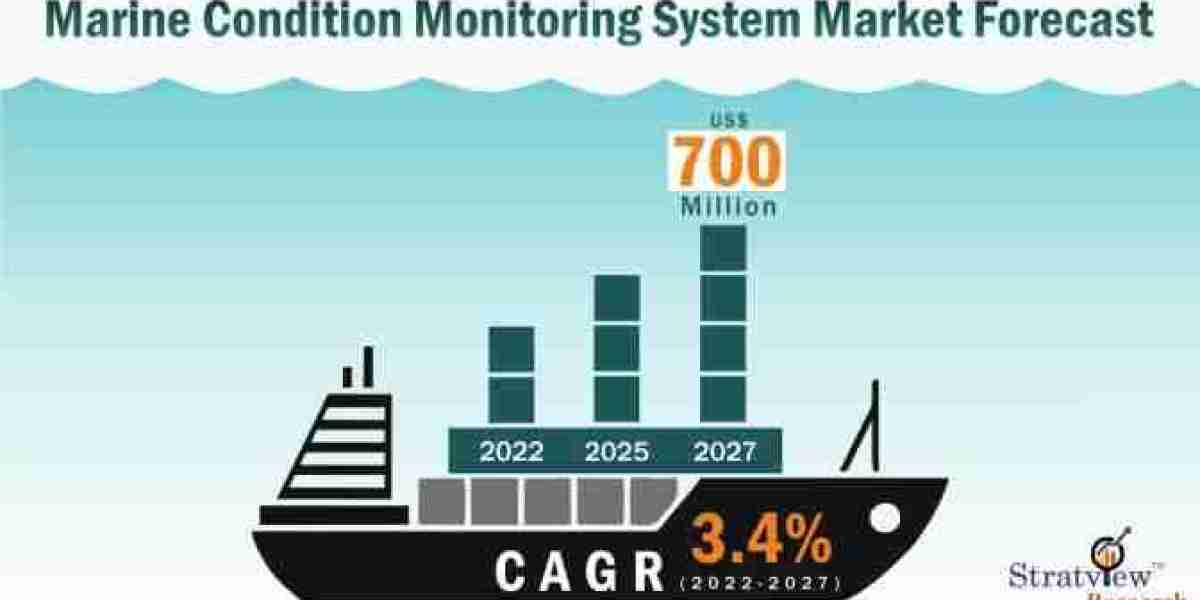The maritime industry relies heavily on the safe and efficient operation of vessels to ensure smooth trade and transportation across the globe. In this context, marine condition monitoring systems have emerged as critical tools for enhancing vessel performance and safety. These systems enable ship operators to monitor the health and operational parameters of various onboard components, allowing for proactive maintenance and reducing the risk of unexpected failures. In this article, we will explore how marine condition monitoring systems contribute to the improvement of vessel performance and safety. The Marine Condition Monitoring Systems Market is likely to drive the demand at a modest rate of 3.4% over the next five years, helping the market stakeholders to cross a landmark figure of US$ 700 million by 2027.
Early Detection of Potential Issues: Marine condition monitoring systems continuously monitor parameters such as vibration, temperature, pressure, and fluid levels. By analyzing this data in real-time, these systems can detect early warning signs of potential issues or abnormalities in critical equipment and machinery. This early detection allows for timely maintenance and proactive repairs, minimizing the risk of unexpected breakdowns or accidents at sea.
Predictive Maintenance: One of the significant advantages of marine condition monitoring systems is their ability to predict equipment failures. By leveraging artificial intelligence (AI) and machine learning algorithms, these systems analyze historical data and identify patterns that precede equipment failures. With this predictive capability, ship operators can implement proactive maintenance strategies, scheduling repairs or component replacements before a failure occurs. This approach minimizes downtime and reduces the overall maintenance costs associated with reactive repairs.
Optimal Performance Optimization: Marine condition monitoring systems provide valuable insights into the performance of various components and systems on board. By monitoring parameters such as engine efficiency, fuel consumption, and emissions, these systems can help optimize vessel performance. Ship operators can identify areas where improvements can be made, such as optimizing engine settings or adjusting operational parameters. By fine-tuning vessel performance, operators can achieve fuel savings, reduce emissions, and enhance overall operational efficiency.
Enhanced Safety: Safety is paramount in the maritime industry, and marine condition monitoring systems play a crucial role in ensuring the safety of vessels and crew. By continuously monitoring critical systems, such as propulsion, electrical, and navigation systems, these systems can quickly identify any anomalies or malfunctions that could compromise safety. For example, abnormal vibration patterns or rising temperatures in an engine can indicate a potential issue that needs immediate attention. By receiving real-time alerts and warnings from the monitoring system, ship operators can take timely action, preventing accidents or breakdowns that could jeopardize safety.
Compliance with Regulations: The maritime industry is subject to strict regulations and standards related to safety, environmental protection, and operational efficiency. Marine condition monitoring systems assist ship operators in complying with these regulations. By monitoring and recording critical parameters, operators can demonstrate compliance with environmental regulations, such as emissions standards or ballast water management requirements. Additionally, by ensuring the proper functioning of safety systems and equipment, condition monitoring systems contribute to meeting safety and classification society requirements.
In conclusion, marine condition monitoring systems are essential tools that enhance vessel performance and safety in the maritime industry. By providing early detection of potential issues, enabling predictive maintenance, optimizing performance, ensuring safety, and facilitating regulatory compliance, these systems significantly contribute to the efficient and safe operation of vessels. As technology continues to advance, we can expect further improvements in marine condition monitoring systems, enabling even greater performance enhancements and safety measures for the maritime industry.









